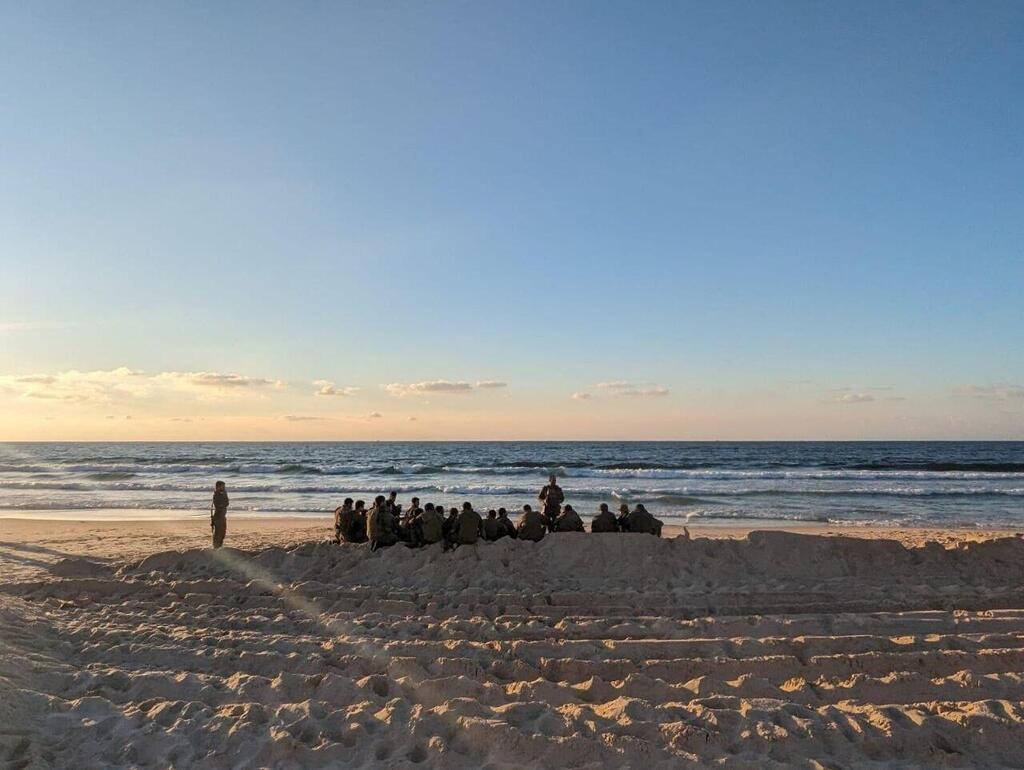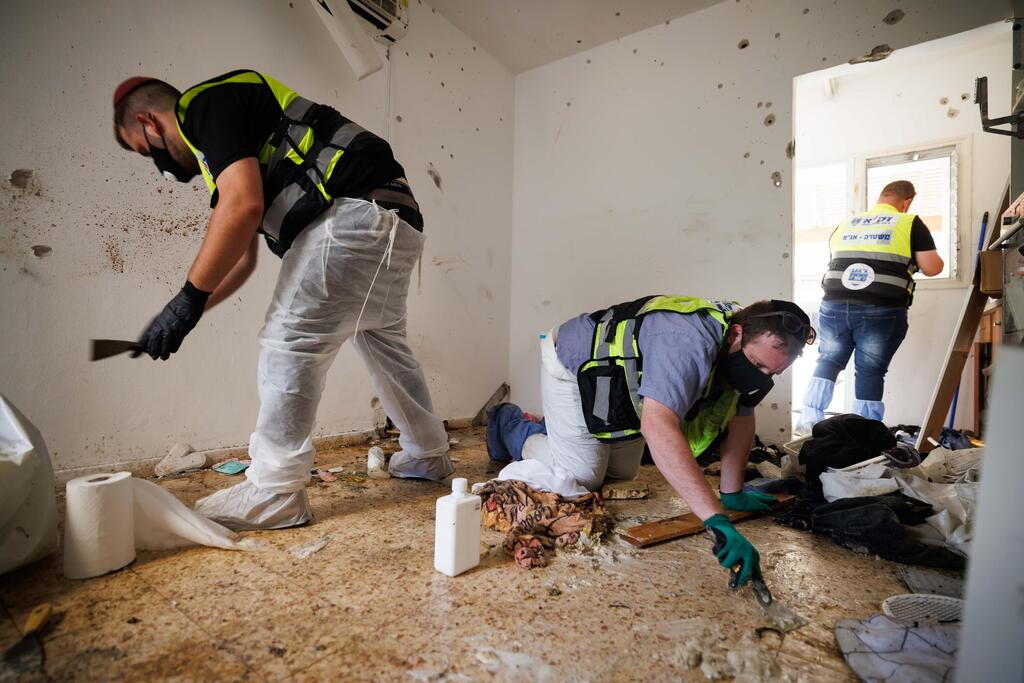For three years, between 2009-2012, I focused on my undergraduate studies in cultural studies. I worked hard during the days and read in the afternoons and nights. It was important for me to achieve good grades, to prove myself, to open my mind and heart to more theorists and theses about the complex world around us. For the first time, I heard words like structuralism, formalism, post-colonialism.
Read more:
To the "isms," as we the students called them, there was a thread of sanctity, as they delved into the metaphysical, into a world above the daily disturbances. There was no hard dissonance to delve into the elevated spiritual world while trying to study in front of a half-empty fridge and accumulating fatigue. To believe that these ideas had some active meaning in the world, that change could be made through making a difference and creative thinking.
2 View gallery


IDF soldiers on a Gaza beach, how can one focus on studies?
(Photo: IDF Spokesperson's Unit)
My studies took place at Sapir Academic College, located for many years in the Sha'ar HaNegev Regional Council, half a kilometer from Sderot and the surrounding kibbutzim, about 3.7 kilometers from the border of the Gaza Strip. Just two years after Hamas took control of the Strip in local elections, the reality of missiles over the cities, Kibbutzim and villages was deeply rooted. The residents' homes were not enough for them to feel safe. A safe room inside the house was needed to protect their bodies from harm. Their souls were already carved out of an unbearable reality of constant threat. Missiles that could fall from the sky at any moment.
During those three years when I tried to understand modern French theorists at Sapir College, I was a guest for a moment in this wonderful area, where brave and resilient people inhabit. People whom the Israeli government took for granted their resilience and sacrifice, relying on it to ease their work for the public. During those three years when I was a guest in the Western Negev, I, too, experienced the red alerts, the threats of Kassam missiles. One night in winter, I dreamt that an alert siren wailed outside, and I crawled and dragged myself towards the safe room. Its door was open, and I could see the turned-off heater attached to the opposite wall. Mattresses with blankets were haphazardly placed on the floor, and a pale-yellow light illuminated them. I didn't manage to reach the safe room in that dream.
In one of the courses, we studied Kafka's important tales. His dream-like stories - "The Trial," "A Country Doctor," and "The Next Village" - intertwined with my fatigue and attempts to grasp the study materials, mixing with dreams of crawling into the safe room. All of them had a difficult sense of hopelessness, as if we would never reach the essence of the matter and the goal. And the goal back then was to sleep peacefully.
I don't know how the residents of Sderot, Ofakim, Nir Am, Mefalsim, Bari, and Kfar-Aza manage to sleep in peace. But I know, from the horrifying testimonies of what happened on the Sabbath of October seventh, that their skilled ears managed to differentiate the missile siren alerts from their day-to-day reality. They understood that morning that something terrible, unprecedented was happening.
Since that morning, when I also woke up in relatively safe Tel Aviv to the wailing of alarms, I was engrossed in that period, in the "isms" we studied and in the cultural theories we revised and criticized. Especially in this situation, and with the current escalation, was the theory of Israel as a colonial force in the region. Back then I raised my head to this absurdity. A theory that one or two researchers raised and since then, it has rooted in the Humanities fields. Nonsense. There's not a slight truth about Israel and colonial control of power. And the Palestinians are not a single entity of helpless natives. The members of Hamas who schemed to take control of southern Israel using trucks and RPGs dismantle this theory. They are the occupiers by force. They, with the help of the Iranian regime, were sent to establish themselves in the area. They are not willing to negotiate or have peace of any kind. Israel's outstretched hand for calm peace, whose fingers were the Civilians, was brutally cut by the terrorists.
In Kafka's "A Country Doctor," an old doctor is called in the middle of the night to a house where a young patient lies gravely ill. The family stands around him anxiously, pinning their hopes on the old doctor's eyes and hands. At first, he hears the patient's words, whispered, "Doctor, let me die." But the doctor assumes it's nothing, maybe a hypochondriacal concern. But when he looks again, and the sister wave with a cloth soaked in blood, he realizes that there is something to the situation. And when he lifts the blanket again, he notices an ulcerated wound with worms wriggling in it. "A poor boy," says the doctor, uncertainly to himself, perhaps to the patient, "you're lost. I have discovered your great wound; this flower on your side is killing you."
The State of Israel, which thought it could control with sedative injections and alcohol rubbing on the wound, discovers that the worms in the ulcer called the Gaza Strip of Hamas have been revealed at a bitter price that we still cannot see the end of. The red ulcer on the side threatens it and seeks its soul. Many citizens, residents of the area, were butchered with joy by the murderers, fellow kibbutz members who used to assisted sick residents from Gaza to receive proper treatment in Israel, were kidnapped, and their fate is unknown. They were taken alongside ill people, infants, children, and young girls.
After concentrating on the wound, we will all have to readjust in the new space and understand the fear of death that befell us, forcing us to fight back and cause further deaths. I know the people of Israel well. They seek peace and tranquility. They will do anything to avoid a war in which children and the elderly are killed. But for now, they must fight for their survival and their renewed character. Until the country doctor can leave back to his home with peace of mind, we must ensure ruins are rebuilt, and the threat is removed.
- Omri Horesh is an author
First published: 23:07, 12.15.23



